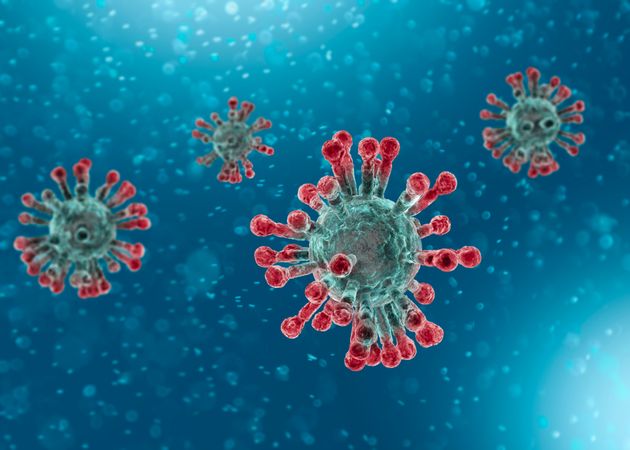Certain deep-rooted religious beliefs or social representations in Senegal could constitute a risk factor for the spread of the coronavirus, which entered the country last Monday.
In Senegal, as in most of sub-Saharan African countries, where frequent religious and social events attract huge crowds (marriage, baptism, funeral, Muslim prayers, masses, etc.), meeting places appear like fertile breeding grounds for the transmission of infectious diseases, such as the Covid-19 (the new name of the coronavirus).
After confirming four cases of Covid-19 in Senegal, tests on other suspects are underway at the Institut Pasteur de Dakar (IPD), hence the real risk of direct or indirect transmission of the infection.
Khadijatou Dieng, a fervent 27-year-old disciple of the Mourid Sufi Brotherhood, plans to go to Porokhane (over 250 kilometers south of Dakar), at all costs.
“God is great. I don’t think we are at any risks by going to Porokhane. Even if the coronavirus has entered Senegal, we are believers and we ask Good to protect us”, the young girl said heartily.
Read also: Senegal confirms two new cases of coronavirus
This high place of Mouridism (Muslim Sufi brotherhood), on Thursday, plays host to thousands of faithful on the occasion of the 69th edition of “Magal” celebrating Mame Diarra Bousso, the mother of Cheikh Ahmadou Bamba, the founder of the said brotherhood.
According to sociologist Abdoukhadre Sanogo, “Senegalese are very attached to this kind of event. Besides, this is what they call their dedicated day. They believe these ceremonies are times when prayers can be said to avoid plagues” like the coronavirus.
A day of prayers was held on Wednesday at the Massalikoul Jinaan (Itineraries of Paradise, in Arabic) Mourid great mosque located in the heart of the Senegalese capital.
Meanwhile, the Covid-19 continues its macabre tour of the world. More than 3,200 people have died so far, the majority of the victims hailing from mainland China, where the pandemic started in December 2019.
This is an alarming situation, which calls for drastic measures to stop the disease outright. One of them is to ban gatherings as much as possible. Saudi Arabia has temporarily stopped entry into its territory for Umrah (small pilgrimage). Morocco, also affected, canceled the 15th edition of its International Agricultural Show (Siam). Switzerland has suspended its elite football championship. In Italy, the main European center of the virus, football matches are played behind closed doors.
“In a country like Senegal where the physical distance between people is much reduced, it is necessary to take fairly strong measures and to raise public awareness,” Fred Eboko, Director of Research at the Research Institute for Development (IRD, France).
In the same vein, Eboko admits that “the State could be led, after consultation with religious leaders, to cancel rallies in the event of imminent danger to public health. It is better to suffer the postponement or reduction in terms of the day of a religious demonstration than to run the risk of having a real massacre.”
Besides, the Magal of Porokhane, the General Ziara of the Tidjanes (another major Sufi Brotherhood) in the city of Tivaouone (established since 1930), the Daaka of Medina Gounass (spiritual retreat initiated since 1941), the 57th annual edition of the Kazou Rajab (commemoration of the birth of Serigne Fallou Mbacke, 2nd Caliph General of the Mourids) or the 140th edition of the Call made in 1880 by the leader of the Layene community, are fast approaching.
The Senegalese authorities therefore have their work cut out for them. Especially since “in our beliefs, which are the basis of behavior (risky or not), there is an aspect of trivialization. We also consider that there are a number of things that cannot happen to us because we are immune, thanks to great religious guides or to myths,” says Mr. Sanogo, teacher-trainer at the Higher Institute of Professional Education (Isep) in Thies (70 km east of Dakar).
“Senegalese people find it difficult to distinguish between cleanliness and hygiene. They are very clean, but a small percentage of them are hygienic,” Sanogo said.
In a publication dated February 19, the AfricaCheck site, whose motto is to separate reality from fiction, has undergone an article in which it is argued that “African blood and black skin” are factors of resistance to coronavirus.
The AfricaCheck site, quoting Omolade Awodu, a professor of hematology at the medical school of the University of Benin in Nigeria, said he has “found no research to confirm” this thesis.
Read also: $12 billion from WB to fight Covid-19 in Africa
In West Africa, Ebola has exposed the limits of many cultural practices. At the height of the epidemic, funeral rites helped spread the disease.
“We have learned a lot from Ebola, including how to handle the remains that families approached and touched. While the dead were still contagious,” Fred Eboko recalls.
In less than two years, Ebola had killed more than 11,000 people in Guinea, Liberia, Sierra Leone, Mali and Nigeria. Senegal was able to avoid Ebola when an infected young Guinean entered its territory. This patient who was then quarantined in Dakar later recovered and returned home.
All of these events have led him to say that if the Covid-19 “enters this country, it will be very difficult” to hold it back.
ID/Dng/fss/abj/APA


